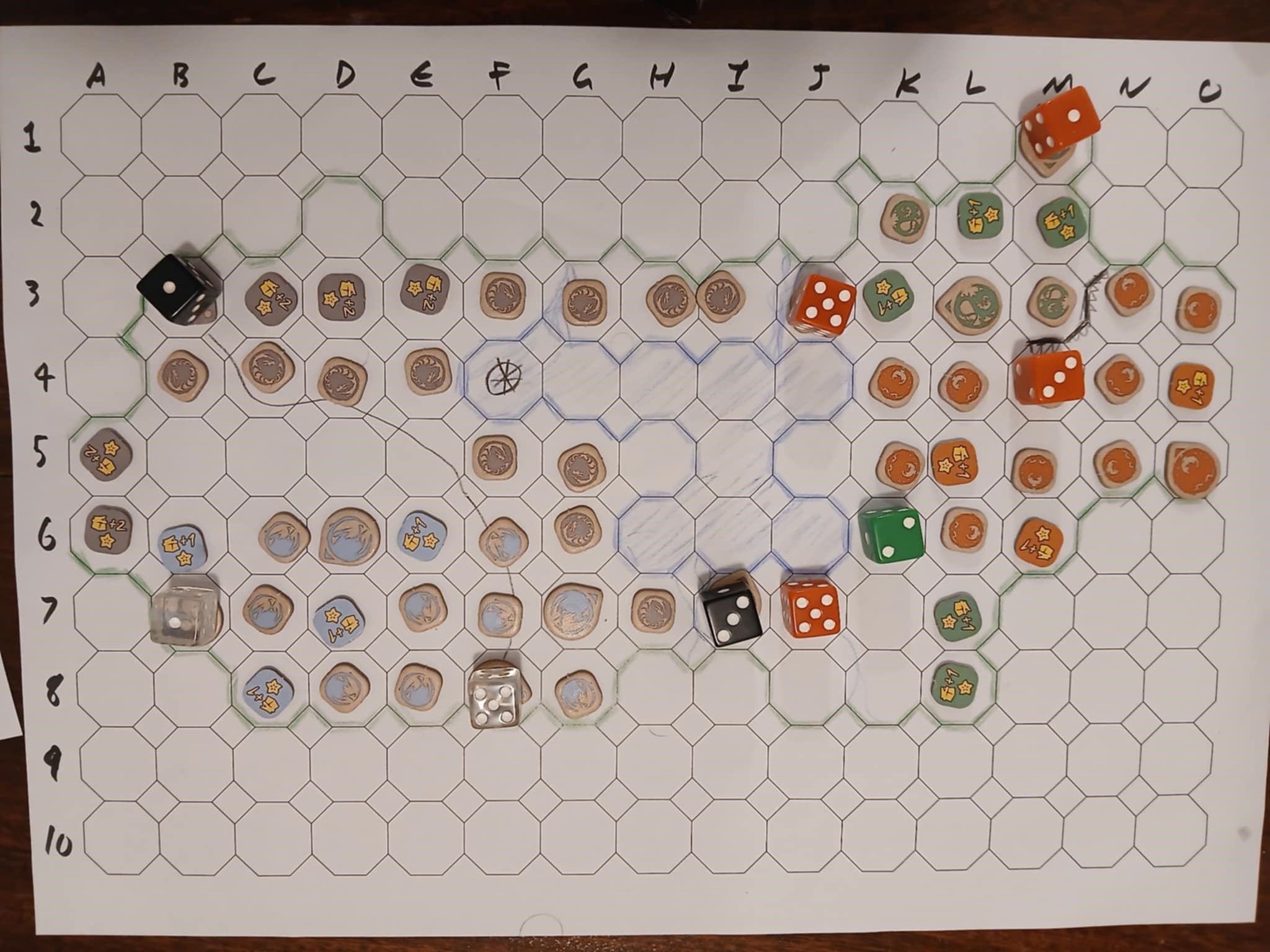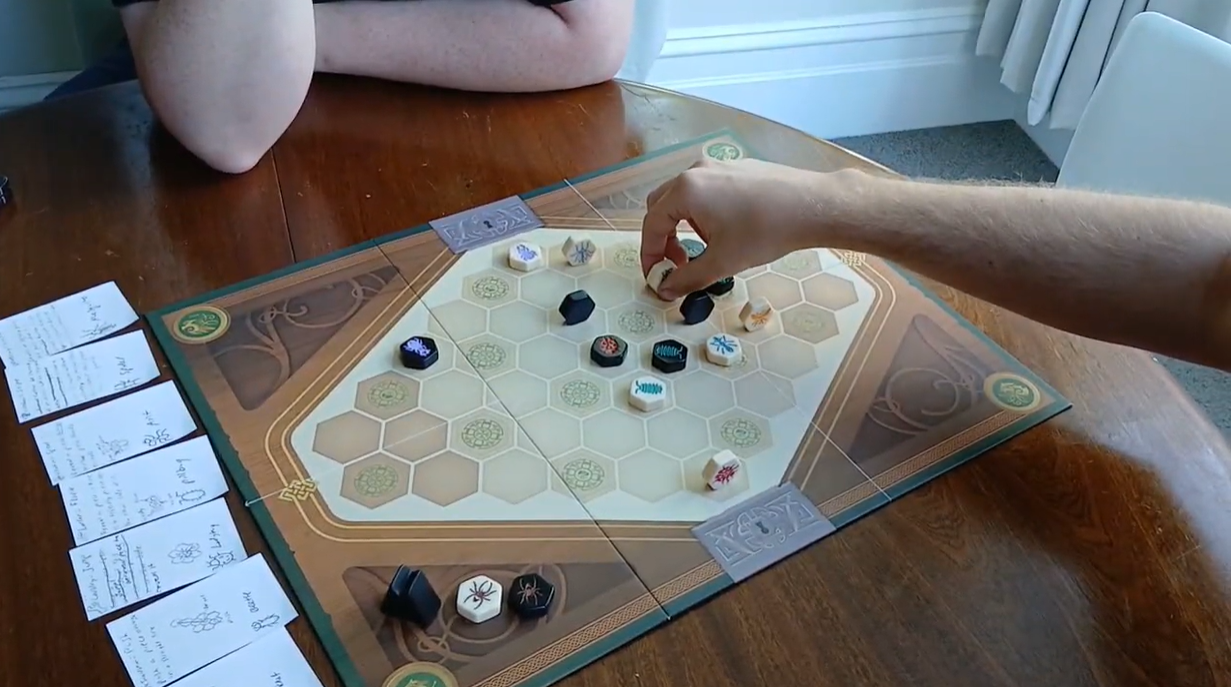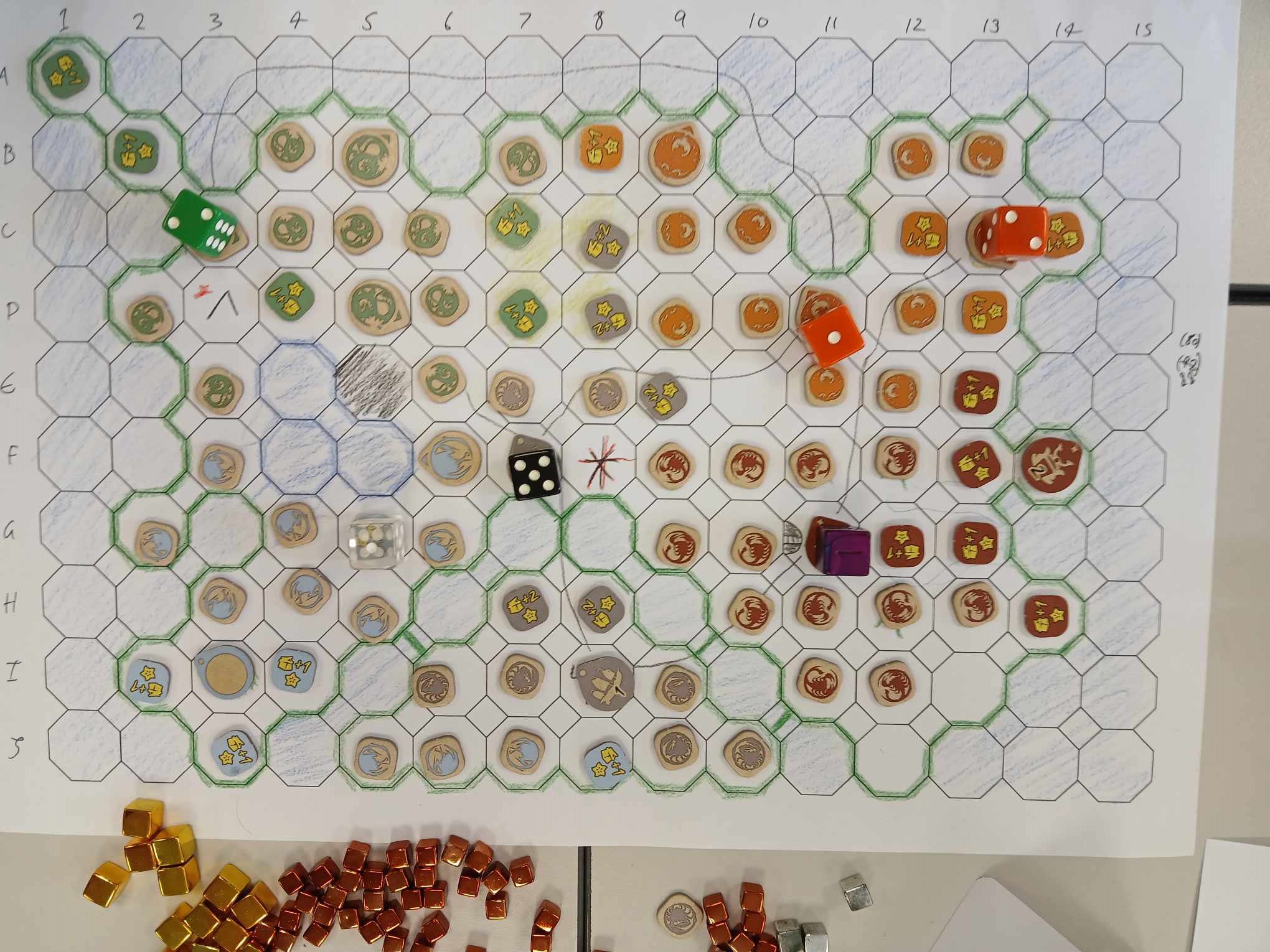This page keeps track of all of the board game design related posts that I have made, including reviews! Information for specific games can be found on their respective pages.

31st of May 2025
Ask someone to “describe a character” and they may struggle. Ask someone to “describe a spellcaster in a fantasy setting” and they may suddenly find their task to be significantly easier. This is despite the fact that “a spellcaster in a fantasy setting” still fits within the remit of “describe a character”. This phenomena is particularly common in my other area of interest: Improv.

18th of May 2025
Quite often creatives get asked: "Where do your ideas come from"? It's a silly question really, everyone has ideas, which can come from seemingly nowhere or from all manner of different places. But some people do seem genuinely amazed at the ideas that other people have or the things that they come up with. Plenty of people have interesting or incredible ideas, but they don't think that their ideas are interesting or incredible because they are having them on a regular basis.
18th of April 2025
Blood on the Clocktower is a brilliant game. For those who have never played it, I HIGHLY recommend that you do. Even if you are someone that doesn’t normally enjoy social deduction games, I still believe that Blood on the Clocktower offers something new that may improve on issues that you have with other social deduction games. This is because of the brilliant work of the creator in iterating on previous social deduction games – making small incremental improvements that build to make a much greater game.
4th of April 2025
Continuing where I left off from last week discussing rules light and rules heavy systems, I wanted to discuss the idea between soft and hard rules.
Soft and hard rules, at least in my thinking, refers to the ability of a system to flex and be adaptable to different situations and uses. In general, this tends to align with light and heavy rules – lighter systems tend to be “softer” while heavier rules systems tend to be “harder”.
26th of March 2025
I feel the need to continue writing in a similar vein to my previous post. In that post I was discussing how rules create a feeling in TTRPG’s, and the difficulty of specific rules niches that create strong elements of genre and feeling vs broader rulesets that can do more things, but not necessarily as well as the more specific rules. I really wanted to expand on this, because I keep coming back to this idea, especially in relation to the VOW. I’ve realised this might take a while, so there will be further posts following on from this, but today I wanted to discuss the idea of light and heavy rulesets.
14th of March 2025
Recently, a post by Morgan Davie sparked discussion in an RPG discord that I am a part of. The discussion was around the use of rules in TTRPG’s, and specifically the idea that rules are “just vibes to create a play vibe”. While jokingly said, I think this is somewhat true and I wanted to discuss it today.
20th of February 2025
While thinking about this initial idea for a competitive Role Playing Game, Matt Colville, a famous D&D youtuber who is creating his own RPG, released this video. In essence, he uses four key words to help define the parameters of the game, thereby helping to focus design on supporting those four key words or goals. In their case, the keywords were Tactical Heroic Cinematic Fantasy. If we were to write an equivalent set of keywords for The VOW (and I did), they would be “Competitive, Political, Epic”.
13th of February 2025
Recently while playtesting The VOW, I had a friend ask me: “why does it matter if someone wins?” To answer that question requires a quick delve into the intention behind the game and its inspirations.

19th of January 2025
One of the pet projects that I am working on is The VOW – a competitive, political Role Playing Game. The intent is that players play as the leaders of a nation (or nations) and have to manage their promises to their citizens – their Vow – against the day to day demands made by their citizens and the movements of the other empires. I have begun playtesting this game, and while initial playests have been promising, I have quickly run into a couple of issues. In todays post, I am going to discuss the iterations of the resource system, the feedback I have had on them, and my thoughts on this and the attempts I have made to address it. While this is very “devloggy”, bear with me! I think there are some interesting learnings to take away.
8th of January 2025
People play board games for many different reasons: The satisfaction that comes from skill expression, the opportunity to socialize with friends, or perhaps enjoying the story created by the game. If you're anything like me, one of the reasons you might enjoy playing games is the discovery.
I love learning new games and discovering the different ways that the systems interact, and opportunities begin to introduce themselves as your understanding of the game grows. However, this joy can begin to fall away when you've played the game a lot, as there is less and less to discover, and fewer new or unexpected strategies present themselves. Eventually, you find yourself returning to the game less and less and start looking at the hot new releases. This cycle begins again with a new game (or expansion) and suddenly you have an entire shelf in your house dedicated to board games both new and old, or perhaps you begin to sell off all the older board games that no longer have the spark...